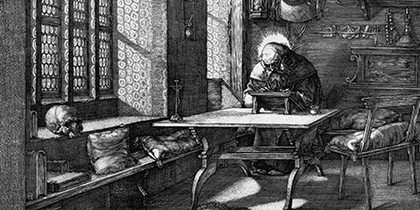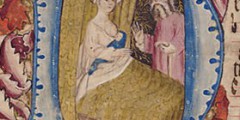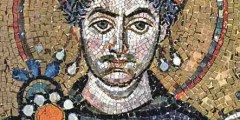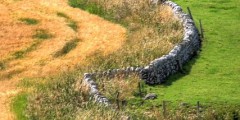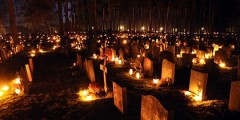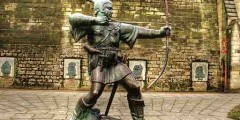Early Modern Medievalism: The End or Creation of the Middle Ages?
March 27, 2015
Post by Dr Mike Rodman Jones, School of English Albrecht Durer’s St Jerome in his Study (1513) is a seminal work in Renaissance art history. It is also one that, in its subject, execution, and reception, divides cultural time in a way that both omits and contains the Middle Ages. St Jerome (d. 420) appears …
Eclipses and comets and portents (oh my)
March 18, 2015
Contrary to popular opinion medieval people did not think that the world was flat. Educated people worked on an Aristotelean idea that the world was round and that it had different zones (including places that were either too hot or too cold to live in). However, medieval people, just in Antiquity, did not know that …
‘þe best mylke is womman milke’: Does Breast Milk Heal? – Guest post by Erin Connelly
July 23, 2014
On a recent episode of GPs: Behind Closed Doors (Channel 5), a reality show that examines doctor-patient relationships, a young mother told her GP that she had been treating her infant’s conjunctivitis with breast milk. The GP was surprised by this treatment and advised against it, stating that it was both ineffective and unpleasant. However, …
Rethinking Ravenna: review
April 10, 2014
A guest post by Maroula Perisanidi, postgraduate student in History ‘Our royalty is an imitation of yours, modelled on your good purpose, a copy of the only empire, in so far as we follow you we excel all other nations’ These are the terms used by Cassiodorus on behalf of King Theoderic (493–526) to express …
Ross Balzaretti, Thinking about Ravenna
March 7, 2014
A guest blog by Dr Ross Balzaretti, History, University of Nottingham Judith Herrin is one of those (all too rare) historians who asks and answers unexpected questions, and her forthcoming IMR lecture ‘Rethinking Ravenna: The Ostrogothic Inheritance’ (5.30pm, 27 March 2014, A41, Clive Grainger Building, University Park) will no doubt do just that. I am …
Past identities: medieval differences between Scotland and England
January 21, 2014
The photo attached to this blog can be replicated in many family albums. The girls here happen to be my goddaughter and her sister, on their way to visit friends and family in Scotland, but they might equally be my children on the same mission north. There remains a slight sense of travelling to a …
Feasting the Dead: Hallowe’en
October 31, 2013
Today is Hallowe’en which according to many sources is based on ‘Celtic’ traditions, because the Celtic year begun on the first of November. While Hallowe’en is not necessarily about the dead (more about the undead) it falls on the night before All Saints’ Day. The Hallow part of the word is derived from Old English …
What is Robin Hood?
October 28, 2013
I’d never really thought of Robin Hood as jousting. A mean sword fighter, yes; good with the quarter staff, if not as good as Little John; and of course superlative with a long bow. Just not the lance. So it took me a few moments to re-orientate myself at the Robin Hood Pageant at Nottingham …
Prophecies and politics (or: anarchy in ASE)
October 11, 2013
Bob Geldof has joined the ranks of doom mongers when he predicted that the world only has a good 17 years left to go. While there are plenty of reasons to be pessimistic, given all the current wars and human tragedy, the idea that the end is nigh has been around for a long time. …

